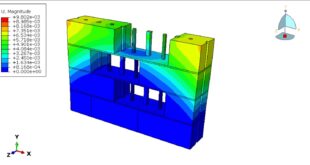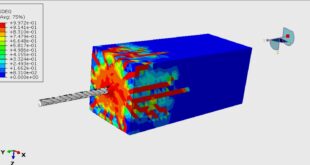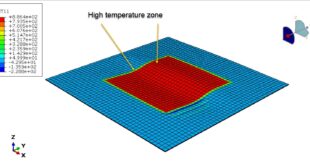Introduction to Pull-Test Simulation in Abaqus
Pull-test simulation in Abaqus is a computational method used to analyze the mechanical behavior of materials and structures under tensile loading. This type of simulation is commonly employed in various industries, including aerospace, automotive, and civil engineering, to predict the performance and failure mechanisms of components subjected to pulling forces. A pull-out test is a common experimental procedure used to evaluate the bond strength between two materials, such as reinforcing bars (rebar) embedded in concrete or fibers in a composite material. In computational mechanics, simulating a pull-out test using software like Abaqus allows engineers and researchers to study the interfacial behavior, stress distribution, and failure mechanisms without conducting physical experiments
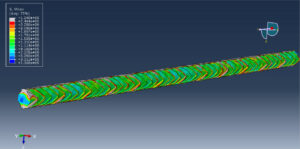
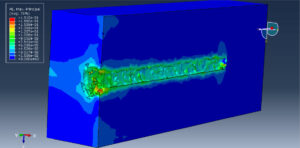
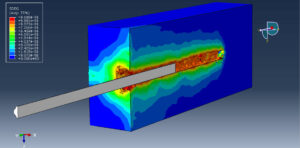
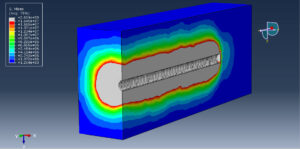
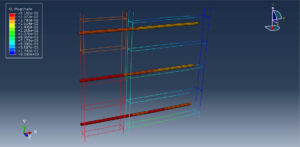
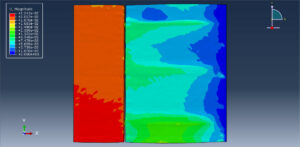
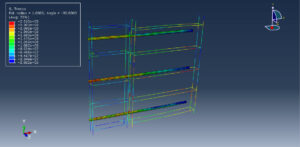
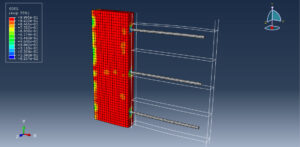
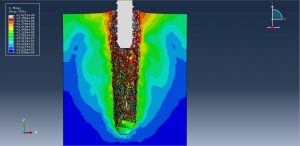
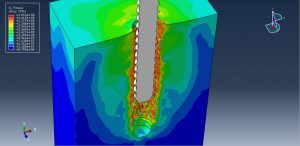
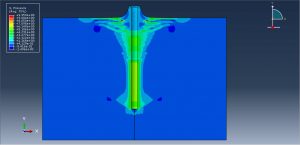
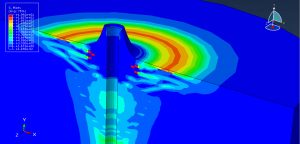
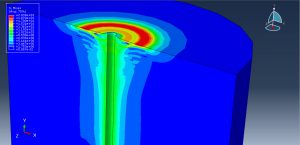
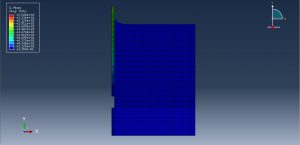
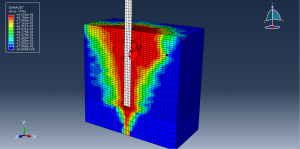
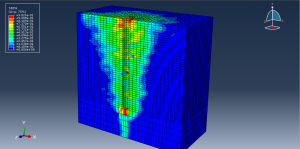
Key Objectives of a Pull-Out Test Simulation
Bond Strength Analysis: Determine the bond strength between the embedded material (e.g., rebar) and the surrounding matrix (e.g., concrete)
Stress Distribution: Analyze the stress distribution along the interface and within the materials
Failure Mechanisms: Study the failure modes, such as debonding, cracking, or yielding
Parametric Studies: Investigate the effects of material properties, geometry, and loading conditions on the pull-out behavior
Material Characterization: Determine the stress-strain response of materials under tension
Design Validation: Ensure that the design can withstand expected loads without failure
Optimization: Optimize material usage and structural design for better performance

Applications of Pull-Out Test Simulations
Civil Engineering: Study rebar-concrete bond behavior in reinforced concrete structures
Composite Materials: Analyze fiber-matrix interfacial strength in composites
Geotechnical Engineering: Evaluate soil-anchor or soil-reinforcement interactions
Challenges in Pull-Out Test Simulations
Accurate Material Modeling: Capturing the nonlinear behavior of materials like concrete
Interface Modeling: Properly defining the bond-slip or contact behavior
Convergence Issues: Ensuring numerical stability, especially during failure
By leveraging pull-test simulation in Abaqus, engineers and researchers can gain valuable insights into the tensile behavior of materials and structures, leading to more robust and optimized designs
The package contains nine separate tutorials, each tutorial includes cae, inp, code, paper, reference of the materials, and a step-by-step English video. You can check the titles of the tutorials below
A) pull-out test of a ribbed steel bar from Ultra-High-Performance-Fiber-Reinforced Concrete in Abaqus
B) Finite element modeling of the pull-out test of precast wall panels’ connection in Abaqus
C) Pull-out behavior of a silicon carbide(ceramic) nail from the bone in Abaqus
D) Pull-out test of a ribbed steel bar from the UHPC part in Abaqus
E) Pull-out behavior of a single steel fiber using cohesive surface modeling in Abaqus
F) Dynamic pullout process of a steel bar from the concrete by using cohesive surface interaction in Abaqus
G) Dynamic pullout of a steel plate from the RC beam in Abaqus
H) Pull-out process of the deformed steel bar from the concrete in Abaqus
I) Pull-out process of the medical screw from the bone in Abaqus- Damage investigation
The price of this package is Ninety-One Euros; you can use a PayPal account, a Visa, or a Mastercard for the payment. If you are interested in the fire package, send us an email here: abaqusfem.com@gmail.com
 Abaqus tutorials Abaqus tutorials
Abaqus tutorials Abaqus tutorials
